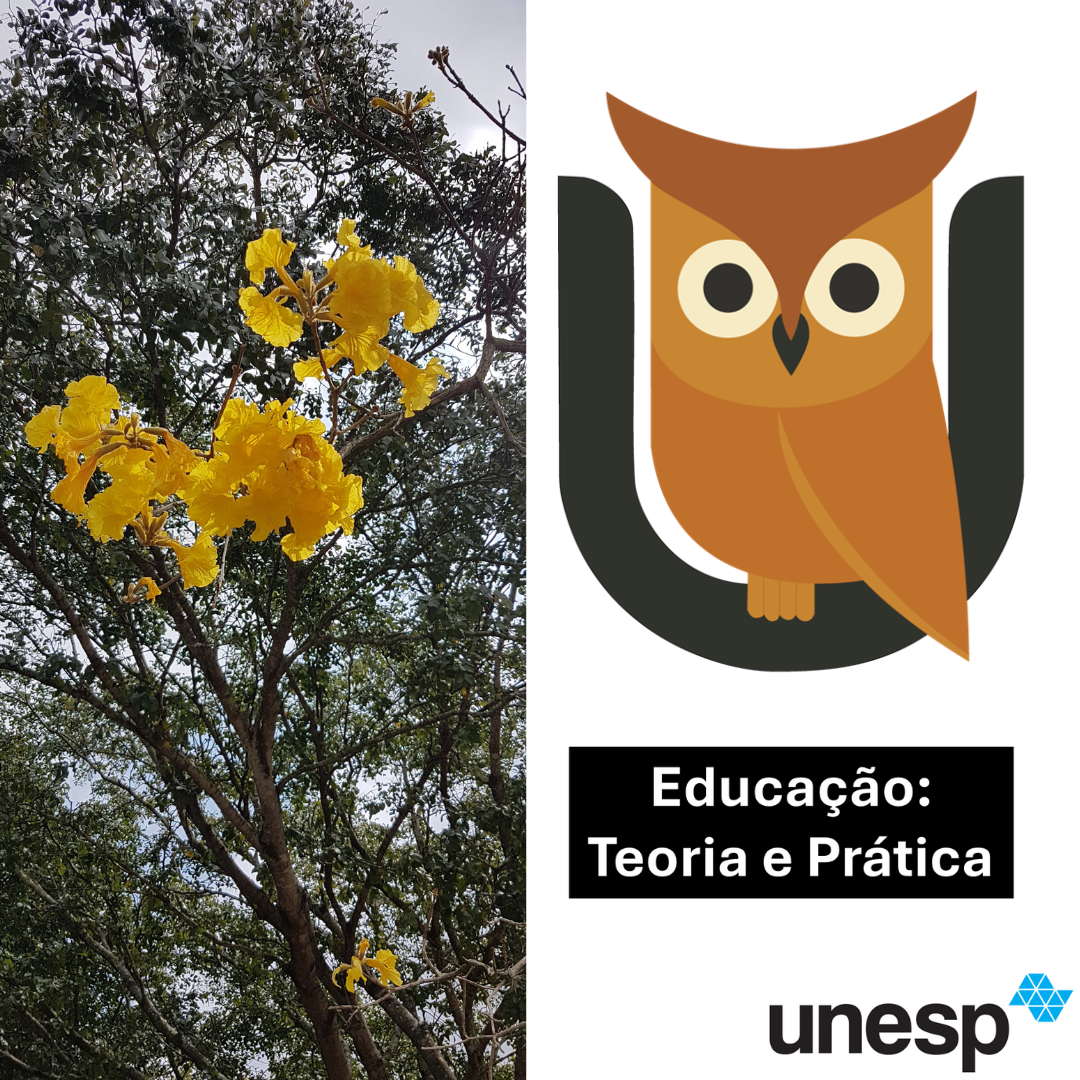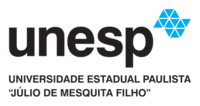Evaluation of social skills in students with gifted behavior
DOI:
https://doi.org/10.18675/1981-8106.v35.n.69.s18158Keywords:
Special education. Giftedness. Social skills. Behavior problems. Elementary School.Abstract
The phenomenon of giftedness is characterized by three behavioral traits: above-average skills, involvement with the task and creativity. These individuals must be assisted by specific professionals and benefit from specialized educational services. In addition to academic aspects, the literature in the area points to the need for further investigation that assess socio-emotional aspects, such as the social skills behavior. The objective of the present article was to evaluate the Social Skills repertoire of students with gifted behavior, through the evaluation of parents/guardians and self-assessment. Six students with gifted behavior and their respective parents/guardians (12) participated in the study, totaling 18 participants. To proceed with the assessment of students’ social skills, we used the Sistema de Avaliação de Habilidades Sociais as material, which is an instrument validated in the national context. The results indicated that the social skills of students with gifted behavior were considered good, however, the students proved to be quite heterogeneous in this aspect, with students who experimented from the elaborate repertoire to the lower average repertoire. Thus, we emphasize that the development of social skills is more closely related to the environment in which the student is inserted and to meeting specific needs than to the presence of giftedness.
References
ALENCAR, E. M. L. S. Características sócio-emocionais do superdotado: Questões atuais. Psicologia em estudo, Maringá, v. 12, n. 2, p. 371-378. 2007. Disponível em: http://ww.scielo.br/pdf/pe/v12n2/v12n2a18.pdf. Acesso em: 17 mar. 2023.
BANDEIRA, M. et al. Validação das Escalas de Habilidades sociais, Comportamentos problemáticos e Competência Acadêmica (SSRS-BR) para o ensino Fundamental. Psicologia: Teoria e Pesquisa, v. 25, n. 2, p. 271-282, 2009. Disponível em: http://www.scielo.br/pdf/ptp/v25n2/a16v25n2. Acesso em: 17 mar. 2023.
BARKLEY, R. Transtorno de Déficit de Atenção/Hiperatividade (TDAH). Guia completo para pais, professores e profissionais da saúde. Porto Alegre: Artmed, 2002.
BOLSONI-SILVA, A. T.; DEL PRETTE, A. Problemas de comportamento: um panorama da área. Revista Brasileira de Terapia Comportamental e Cognitiva, v. 5, n. 2, p. 91-103, 2003. Disponível em: http://pepsic.bvsalud.org/pdf/rbtcc/v5n2/v5n2a02.pdf. Acesso em: 17 mar. 2023.
BORGES DEL ROSAL, A.; HERNÁNDEZ-JORGE, C.; RODRIGUES-NAVEIRAS, E. Evidências contra el mito de la inadaptación de las personas com altas capacidades intelectuales. Psicothema, v. 23, n. 3, p. 362-367, 2011.
BRASIL, Lei nº 4.119, de 27 de agosto de 1962. Dispõe sobre os cursos de formação em psicologia e regulamenta a profissão de psicólogo. Brasília, DF, 1962. Disponível em: http://www.planalto.gov.br/ccivil_03/leis/1950-1969/l4119.htm. Acesso em: 17 mar. 2023.
BRASIL. Política nacional de Educação Especial na perspectiva da educação inclusiva. Brasília, DF:MEC/SEESP, 2008. Disponível em: http://portal.mec.gov.br/arquivos/pdf/politicaeducespecial.pdf. Acesso em: 17 mar. 2023.
BRASIL. Resolução nº 466, de 12 de dezembro de 2012 do CONEP. Brasília, DF. 2013.
CUPERTINO, C. M. B.; ARANTES-BRERO, D. R. Um olhar para as altas habilidades: construindo caminhos. Secretaria da Educação, Núcleo de Apoio Pedagógico Especializado: CAPE, 2012.
DEL PRETTE, Z. A. P.; DEL PRETTE, A. Habilidades sociais e dificuldades de aprendizagem: teoria e pesquisa sob um enfoque multimodal. In: DEL PRETTE; Z. A. P.; DEL PRETTE, A. (org.). Habilidades sociais, desenvolvimento e aprendizagem: questões conceituais, avaliação e intervenção. Campinas: Alínea, 2003. p. 167-206.
DEL PRETTE, Z. A. P.; DEL PRETTE, A. Psicologia das Habilidades sociais: terapia e educação. Petrópolis, RJ: Vozes. 2002.
DEL PRETTE, Z. A. P. et al. Inventário de Habilidades sociais, problemas de comportamento e competência acadêmica para crianças-SSRS: manual de aplicação, apuração e interpretação. São Paulo, SP: Casa do Psicólogo, 2016.
ELLIOTT, S.; GRESHAM, F. Social Skills improvement system: intervention guide. Minneapolis, MN: Pearson Assessments, 2008.
FRANÇA-FREITAS, M. L. P.; DEL PRETTE, A.; DEL PRETTE, Z. A. P. Social skills of gifted and talented children. Estudos de psicologia, Natal, v. 19, n. 4, p. 288-295, 2014. Disponível em: http://www.scielo.br/pdf/epsic/v19n4/a06v19n4.pdf. Acesso em: 17 mar. 2023.
FREITAS, L. C.; DEL PRETTE, Z. A. P. Categorias de necessidades educacionais especiais enquanto preditoras de déficits em Habilidades sociais na infância. Periódico Psicologia, Reflexão e Crítica, v. 27, n. 4, p. 658-669, 2014. Disponível em: http://www.scielo.br/pdf/prc/v27n4/0102-7972-prc-27-04-00658.pdf. Acesso em: 17 mar. 2023.
GAUCK, L.; TROMMSDORFF, G. Probleme hochbegabter Kinder aus Sicht von Kindern, Eltern und Lehrern. Psychologie in Erziehung und Unterricht, v. 56, n. 1, p. 27-37, 2009.
GRESHAM, F.; ELLIOTT, S. Social skills rating system: Manual. Circle Pines, MN: American Guidance Service, 1990.
GROSS, M. Social and emotional issues for exceptionally intellectually gifted students In: NEIHART, M.; REIS, S.; ROBINSON, N.; MOON, S. (ed.). The social and emotional development of gifted children. Waco: Pufrock. 2002. p. 19-30.
HOLLINGWORTH, L. Children above 180 IQ: Origin and development. New York: World Books. 1942.
HORA, H. R. M.; MONTEIRO, G. T.; ARICA, J. Confiabilidade em Questionários para Qualidade: um estudo com o Coeficiente Alfa de Cronbach. Produto & Produção, v. 11, n. 2, p. 85-103, 2010. Disponível em: http://seer.ufrgs.br/index.php/ProdutoProducao/article/viewFile/9321/8252. Acesso em: 17 mar. 2023.
LEHMAN, E. B.; ERDWINS, C. The social and emotional adjustment of young intellectually gifted children. In: MOON, S. (ed.). Social/emotional issues, underachievement and counseling of gifted and talented students. Thousand Oaks: Corwin. 2004, p. 1-8.
LOOS-SANT’ANA, H.; TRANCOSO, B. S. Socio-Emotional Development of Brazilian Gifted Children: SelfBeliefs, Social Skills, and Academic Performance, Journal of Latino/Latin American Studies, v. 6, n. 1, p. 54-65, 2014.
MARTINS, B. A. Alunos precoces com indicadores de Altas Habilidades/Superdotação no Ensino Fundamental I: identificação e situações (des)favorecedoras em sala de aula. 2013. 238 f. Dissertação (Mestrado em Educação) – Universidade Estadual Paulista, Faculdade de Filosofia e Ciências de Marília, 2013. Disponível em: http://hdl.handle.net/11449/91210. Acesso em: 17 mar. 2023.
MENDAGLIO, S. Counseling gifted persons: Taking giftedness into account. Gifted Education International, v. 19, n. 3, p. 204-212, 2005.
NEIHART, M. Identifying and providing services to twice exceptional children. In: PFEIFFER, S. (ed.). Handbook of giftedness in children: Psychological theory, research and best practices. New York: Springer, 2008. p. 115-137.
NEIHART, M. The impact of giftedness on psychological well-being: What does the empirical literature say? Roeper Review, v. 22, n. 1, p. 10-17, 1999. Disponível em: https://positivedisintegration.com/Neihart1999.pdf. Acesso em: 17 mar. 2023.
OGEDA, C. M. M. O. Superdotação e Transtorno de déficit de atenção/hiperatividade: um estudo de indicadores e habilidades sociais. 2020. 233 f. Dissertação (Mestrado em Educação) – Universidade Estadual Paulista “Júlio de Mesquita Filho”, Marília, 2020. Disponível em: https://ebooks.marilia.unesp.br/index.php/lab_editorial/catalog/download/195/689/1026?inline=1. Acesso em: 11 jan. 2021.
OLIVEIRA, A. P. Habilidades sociais e problemas de comportamento de estudantes com Altas Habilidades/Superdotação: caracterização, aplicação e avaliação de um programa de intervenção. 2016. 135 f. Dissertação (Mestrado em Psicologia do desenvolvimento e aprendizagem) – Faculdade de Ciências, Universidade Estadual Paulista, Bauru, 2016. Disponível em: https://repositorio.unesp.br/handle/11449/144433. Acesso em: 17 mar. 2023.
RENZULLI, J. S. A concepção de superdotação no modelo dos três anéis: Um modelo de desenvolvimento para a promoção da produtividade criativa. In: VIRGOLIM, A. R.; KONKIEWITZ, E. C. (org.). Altas Habilidades/Superdotação, inteligência e criatividade. Campinas: Editora Papirus, 2014a. p. 219-264.
RENZULLI, J. S. The three-ring conception of giftedness: a developmental model for creative productivity. In: RENZULLI, J. S.; REIS, S. M. (ed.). The triad reader. Mansfield Center: Creative Learning, 1986. p. 2-19.
WECHSLER, S. M. et al. (trad.). International Test Commission (ITC). Declaração do ITC no uso de testes e outros instrumentos de avaliação para fins de investigação científica, v. 1. 2, 2014, p. 1-9. Disponível em: https://www.intestcom.org/files/statement_using_tests_for_research_portuguese.pdf. Acesso em: 17 mar. 2023.
WHITAKER, A. et al. Neurodevelopmental Approach to Understanding Memory Processes Among Intellectually Gifted Youth With Attention-Deficit Hyperactivity Disorder. Applied Neuropsychology: Child, v. 4, n. 1, p. 31- 40, 2015.
Downloads
Published
How to Cite
Issue
Section
License
Authors who publish in this journal agree to the following terms:
a) Authors assign copyright to the journal, with the work simultaneously licensed under the Creative Commons Attribution License that allows sharing of the work with acknowledgment of authorship and publication in this journal.
b) The policy adopted by the Editorial Committee is to assign copyright only after a period of 30 months from the date of publication of the article. After this time, authors interested in publishing the same text in another work must send a letter to the Editorial Committee requesting the release of the assignment of copyright and wait for a response.
c) This journal provides public access to all its content, since this allows greater visibility and reach of published articles and reviews. For more information on this approach, visit the Public Knowledge Project, a project that developed this system to improve the academic and public quality of research, by distributing OJS as well as other software to support the public access publication system to academic sources. The names and email addresses on this website will be used exclusively for the purposes of the journal and will not be available for other purposes. This journal provides open any other party  This work is licensed under a Creative Commons License
This work is licensed under a Creative Commons License










